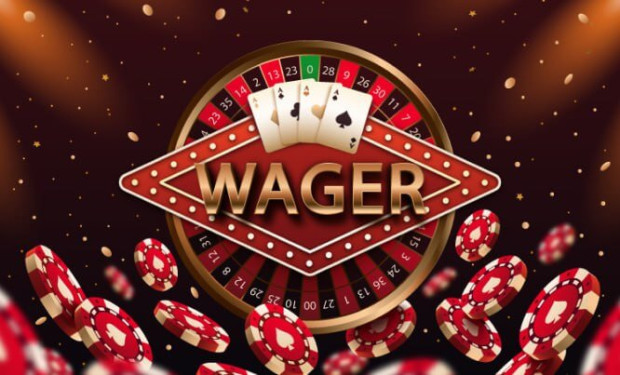The gambling market is rapidly changing. Blockchain technologies, cryptocurrencies, and decentralized platforms are creating a completely new format. It is important not just to compare approaches, but to understand how crypto casinos work and how they differ from classic online platforms, especially when considering slot machines. Slots are an ideal model for analysis, as they reflect the difference in number generation mechanics, payouts, and transparency.
Algorithms and Fairness
To understand how crypto casinos work, it is necessary to look at the foundation — the random number generation system. In a classic online casino, generation is done by the operator’s server. Players have to trust licenses and auditors, as the process is hidden behind closed code. Crypto casinos use a provably fair system, which is based on open seed values and cryptographic functions. Each spin of a slot machine can be verified: the outcome is generated by a combination of server and client seed, and the result can be reproduced. Slots here offer an additional feature — manual seed change. This enhances player control. In a classic casino, such an option is absent: the operator controls the server, and interference is excluded only through regulator checks.

How Crypto Casinos Work: The Role of Blockchain
When examining how crypto casinos work, one cannot ignore the fundamental feature — decentralization. Unlike classic platforms where all data is stored on the operator’s servers, these sites use blockchain. Each transaction is recorded in the chain, and data cannot be retroactively altered.
In slots, this is reflected in recording each bet and payout in the blockchain network. For example: a user starts a slot with USDT tokens, the bet and result are immediately recorded in a block. Thus, the game history is publicly available and subject to verification. This sets crypto casinos apart from classic online services where access to the transaction log is restricted.
Slot Machines and Tokenization
When considering how crypto casinos work, special attention needs to be given to tokens. Classic site slots only use currencies and their internal conversion. Crypto casinos introduce native tokens that offer additional mechanics. A bet in such a machine not only participates in the draw but also earns cashback in tokens that can be exchanged or used to access private tournaments. Sometimes machines are integrated with NFTs. For example, an NFT can unlock an exclusive slot with increased RTP or a bonus round. This creates a new level of engagement that is absent in classic online casinos.
Payout Comparison
The key difference lies in the distribution of winnings. In traditional slots, the return to player (RTP) percentage is fixed and regulated. In crypto casinos, the RTP figure is confirmed by blockchain records, and it can be manually verified. For example, a regular slot may indicate an RTP of 96%, but verifying this in practice is impossible without access to the database. In crypto casinos, each spin is recorded in the chain, and the final distribution can be calculated independently. This level of transparency builds trust in the platform.
Level of Anonymity
To start playing, all you need is a crypto wallet. Classic online casinos require KYC verification, providing a passport, address, and bank details. In the case of slot machines, this affects speed: in a crypto casino, you can start playing instantly without waiting for document verification. However, the responsibility for security lies with the player. Losing the wallet seed phrase means losing access to funds. In a classic casino, responsibility is distributed differently: the operator stores data, and the user depends on account protection.
Unique Machine Mechanics
To clearly show how crypto casinos work, it is worth listing the current machine formats that differ significantly from classics:
-
Machines with payouts in BTC and ETH.
-
Slots with NFT bonus integration.
-
Machines with progressive jackpots funded through blockchain transactions.
-
Games with live streaming, where spin data is simultaneously broadcast to the blockchain.
-
Slots with flexible seed pair settings for fairness verification.
-
Machines with DeFi mechanics: a percentage of each bet is sent to a liquidity pool.
The list shows that crypto casinos are creating new rules that are not available to classic online platforms.
Economic Model: How Crypto Casinos Work
Classic casinos earn through margins and fixed payouts. Crypto platforms often use a tokenization model: a portion of income is distributed among token holders, creating an investment effect. Slot machines become part of the ecosystem: bets in a slot affect not only the jackpot but also the platform token’s value. This ties the game to the blockchain project’s economy. Such a mechanism is absent in classic casinos: the machine operates in isolation.

Conclusion
The main difference lies in transparency and operational mechanics. Classic online casinos are built on trust in the operator and license, while crypto services use blockchain, provably fair systems, and tokenization. Slot machines become a tool not only for entertainment but also a part of the digital economy.
Understanding how crypto casinos work helps to see their strengths and weaknesses. The strength lies in transparency, decentralization, and innovative mechanics. The weakness is the high player responsibility for their own security. The future of the industry depends on whether new systems can combine technological fairness with the convenience of classic online casinos.
 en
en  de
de  ar
ar  es
es  hi
hi  nl
nl  fr
fr  it
it  pt
pt  el
el 









